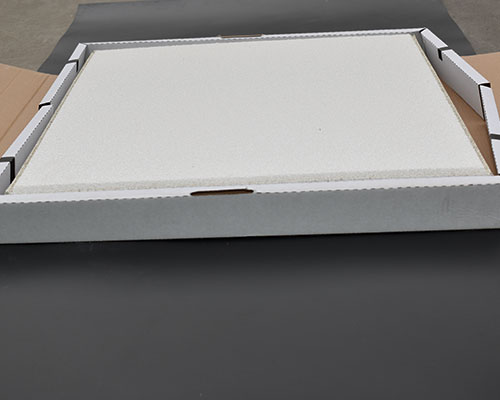Ceramic Foam Filters for cast aluminum alloy can greatly reduce impurities. It not only can reduce the appearance of castings after demolished, but also can reduce the occurrence of defective products, and even reduce maintenance work. By using a molten metal filter, various impurities in the melt can be removed and purified. This kind of casting has a variety of alloys, which can improve mechanical properties, fatigue strength, reduce processing costs, shorten processing time, improve machinability and prolong the service life of machining tools.
In general, there are three ways to remove inclusions from molten aluminum: precipitation, flotation, and filtration. When the size of inclusions is less than 90 μm, they are less likely to settle to the bottom of the furnace under the action of gravity. Traditional gas purification, online refining, and other processes can make some inclusions float to the surface of molten aluminum, but when the size of inclusions is less than 30 μm, the chance of floating is very small.
The advantage of the ceramic foam filter is that it can filter out inclusions much smaller than its pore size. The principle of inclusion passing through the foundry filters can be attributed to three mechanisms: screening mode, cake mode, and depth mode.
The Ceramic Foam Filters for cast aluminum foundry is capable of filtering metal solution slag and metal impurities far better than other filters, and its filtration has a comprehensive physical and chemical effect. Large inclusions are physically screened and retained on the surface of the filter. Due to chemical affinity, small inclusions are adsorbed on the surface, sidewall, or hole of the filter. Therefore, it can effectively filter out impurities of various sizes, including impurities much smaller than the filter hole. The ceramic foam filter for aluminum can also make the turbulent flow of molten metal smooth, reduce turbulence, and make molten metal flow smoothly and neatly.

